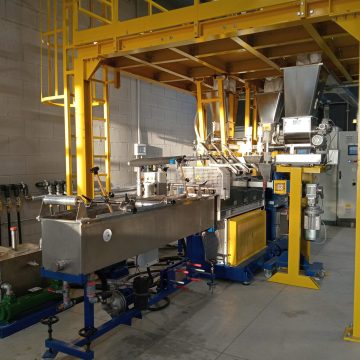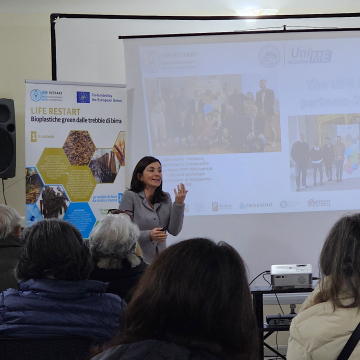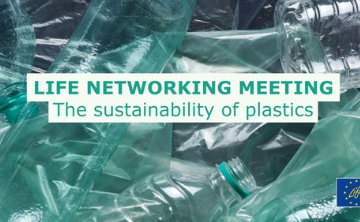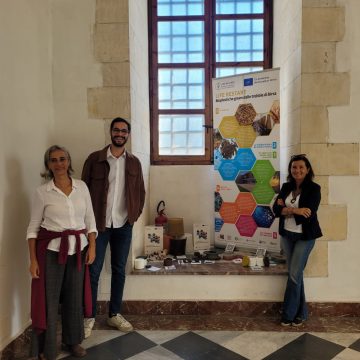
One of the crucially important parts of LIFE RESTART consists in the advancement of the research partially developed by UNIME and Crossing srl before project starting.
The very first phase of project activities consisted in the design by UNIME of a prototype-plant for the transformation of agri-food waste in order to process beer spent-grain and turn them into components for LIFE RESTART bioplastics.
«This is a machinery specifically designed for LIFE RESTART and which does not yet exist in the market and that could be used for the transformatin of other agri-food wastes in the future. More specifically, the prototype is made up of two sections: the first one is dedicated to wastes’ treatment, the second one to quality check. Beer spent-grains as provided by Birrificio Messina need to be properly processed and manipulated”- as explained by Annamaria Visco, associate Professor of UNIME Engineering Department – and as such process goes on, we start the quality check, in order to verify that the waste obtained from the process shows all the characteristics that we are looking for».
«We moved from a benchmark analysis to test bioplastics now available on the market so as to have reference parameters. Bibetech provided us materials to analyse and some of their products. Furthermore, together with Professor Francesco Oliveri from the University of Messina, with are developing a model. We intend to design a mathematical model able to put in relation the materials’ mechanical behaviour with their own composition. This will allow us to produce custom-made materials: we will be able to choose the most adapt composition and industrial process with respect to the specific applications for the bioplastics and to the desired physical and mechanical proprieties».
The actual experimentation on new biopolymers (new bioplastics) production is developed on a lab-scale and it proceeds together with the study on additivies to enhance materials performance, both for their thermic stability and their mechanic performance. As the assemblage of the prototype’s components is finished, the production will move on kg/batch scale.
Studying bio-degradation underground
Moving from its know-how in the field of sustainability and circular economy, Crossing srl contributes to the development of LIFE RESTART in the selection of the best biopolymers and in the implementation of materials’ resistance test. More specifically, it has carried out biodegradability studies on biopolymers during the initial project phases.
The biopolymers designed and produced by UNIME have been buried in the ground and extracted once per month for a proper monitoring of their chemical-phisycal properties. Several parameters have been examined in order to evaluate the state of materials’ degarding by soil microorganisms.
The look of the samples, before and after being buried, shows how bacteria and moulds degrade the biopolymer in order to feed themselves, thus converting the fibres in carbon dioxide, water or methan gas. This transformation makes the samples lighter, therefore another significant parameter to take into account to evaluate the state of materials’ degaration consists in the percentage weight loss.
Through the Differential Scanning Calorimetry analyses (DSC) we are allowed to evalute the melting temperature, the crystallisation temperature and consequently the degree of crystallisation during the six-month monitoring period. The increase of these three parameters shows that the erosion process by microorganisms is going on. The degration in over when we find a critical decrease of crystallisation degree.
The biopolymers up to now tested tend to degrade completely three months after their burial. The degration state may also vary with respect to the kind of degrading process activated. Crossing srl will soon delve in the analysis of the biopolymer for a thorough chemical-physical characterization.
Co-funded by the European Union. Views and opinions expressed are however those of the author(s) only and do not necessarily reflect those of the European Union or CINEA. Neither the European Union nor the granting authority can be held responsible for them.







